Smartphones have become an inseparable part of modern life, revolutionizing communication, work, and entertainment. However, excessive smartphone use (ESU) has been linked to various negative consequences, including addiction-like behaviors, impaired mental health, and diminished attention spans. Recent studies suggest that smartphone-related cues can trigger neural responses similar to those seen in substance addiction, reinforcing compulsive usage patterns. Understanding the effects of smartphone restriction on cue-related neural activity can provide valuable insights into developing interventions for individuals struggling with ESU.
The Role of Cue Reactivity in Smartphone Use

Cue reactivity (CR) refers to the brain’s response to stimuli associated with a habitual or addictive behavior. In the case of smartphone use, cues may include notification sounds, phone screens lighting up, or simply seeing a smartphone in one’s environment. These cues can activate reward-related brain regions, reinforcing the compulsive urge to check the device.
Research has shown that individuals with excessive smartphone use exhibit heightened neural responses to smartphone-related cues, similar to those observed in substance addiction. This heightened sensitivity may contribute to difficulty in controlling smartphone usage, leading to a cycle of compulsive checking and craving.
Investigating Neural Activity Changes Through Smartphone Restriction
To better understand how short-term smartphone restriction influences brain activity, researchers conducted a study using functional MRI (fMRI) to measure changes in cue-related neural responses over 72 hours of smartphone abstinence. The study involved 25 young adults who were regular smartphone users.
Video : What Happens To Your Brain When You Mindlessly Scroll?
Study Design and Methods
- Participants were instructed to refrain from using their smartphones for 72 hours.
- A cue-reactivity task was designed, where participants were exposed to images of smartphones (both active and inactive) as well as neutral objects.
- Functional MRI scans were conducted before and after the restriction period to analyze changes in brain activity.
- Psychometric assessments were used to measure craving, self-control, and emotional responses associated with smartphone use.
Key Findings: How the Brain Adapts to Smartphone Restriction
1. Reduced Activation in the Reward System
One of the most striking findings was a significant reduction in activity in the nucleus accumbens and anterior cingulate cortex after 72 hours of smartphone restriction. These brain regions are heavily involved in reward processing and habit formation.
- The nucleus accumbens is associated with motivation and reinforcement learning. High activation in this area suggests strong craving and compulsive behavior.
- The anterior cingulate cortex plays a role in decision-making and impulse control. Reduced activity here indicates that participants may have experienced less compulsion to check their smartphones.
These findings suggest that even a short break from smartphone use can lead to neuroplasticity, allowing the brain to become less reactive to smartphone-related cues.
2. Alterations in Dopamine and Serotonin-Linked Activity
Further analysis using neurotransmitter probability maps revealed that activity changes in the reward system were closely linked to dopamine and serotonin receptor probabilities.
- Dopamine is a key neurotransmitter in reward-seeking behavior and addiction.
- Serotonin is involved in mood regulation and impulse control.
The findings suggest that smartphone restriction may influence neurochemical processes that drive compulsive behaviors. This could explain why some people feel withdrawal-like symptoms, including restlessness and anxiety, when they suddenly stop using their phones.
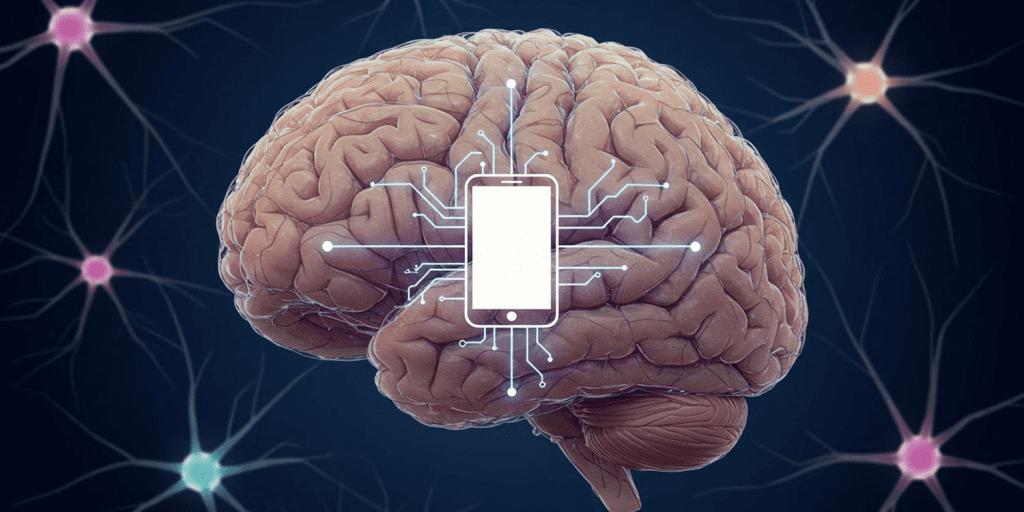
3. Increased Engagement of the Parietal Cortex
Another notable result was the increased activity in the parietal cortex, a region associated with attentional control and sensory processing.
- This suggests that participants became more aware of their environment and less preoccupied with smartphone-related distractions.
- Heightened parietal cortex activity was correlated with reduced craving scores, indicating improved cognitive control over impulsive smartphone use.
This supports the idea that limiting smartphone use can enhance focus and attentional regulation, reducing dependency on digital devices.
4. Reduced Compulsive Checking Behavior
Behavioral assessments showed that participants experienced a significant decrease in the urge to check their smartphones over time. This aligns with the observed neural changes in reward sensitivity and impulse control.
Participants also reported improvements in:
- Sleep quality: Reduced exposure to blue light and nighttime scrolling led to better sleep patterns.
- Social interactions: Without constant phone distractions, participants engaged more with people around them.
- Mental well-being: Several individuals noted feeling less anxious and more present in their daily activities.
Implications for Smartphone Addiction and Digital Detox Strategies
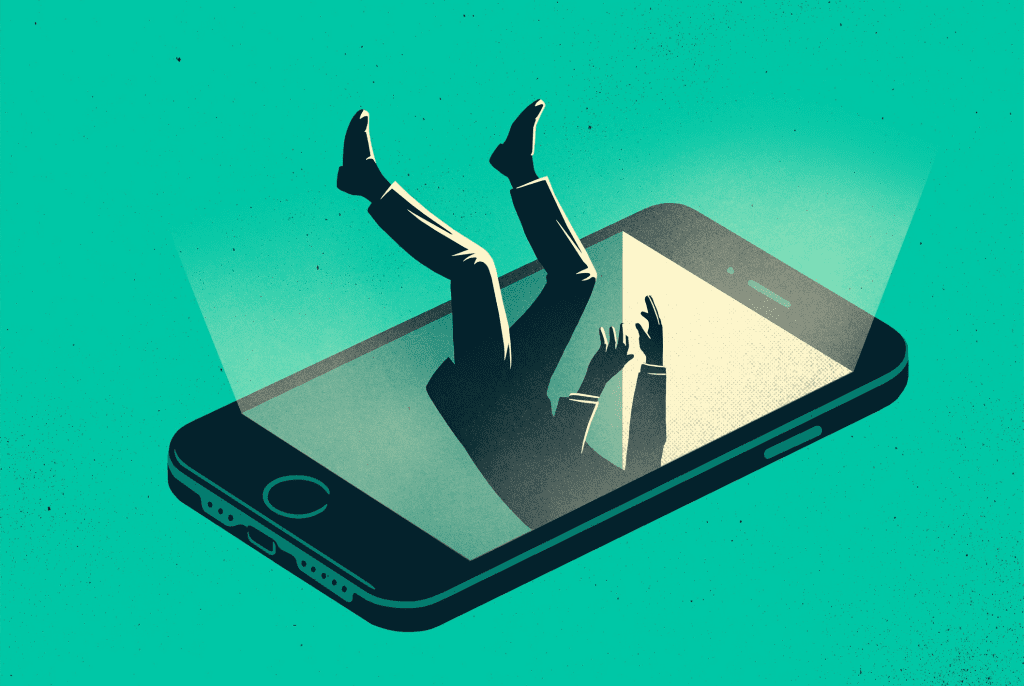
The findings of this study have significant implications for individuals struggling with excessive smartphone use. While a complete break from smartphones may not be feasible for everyone, implementing digital detox strategies can help manage usage and mitigate negative effects.
1. Scheduled Smartphone Breaks
- Taking regular breaks from smartphone use, even for a few hours a day, can help reset neural responses to digital cues.
- Setting specific times for checking messages rather than responding to every notification can reduce compulsive checking.
2. Mindful Technology Use
- Practicing conscious smartphone use by turning off unnecessary notifications and using grayscale mode can help decrease reliance on digital stimuli.
- Engaging in non-digital hobbies, such as reading, exercise, or meditation, can strengthen attention control and reduce smartphone dependency.
3. Sleep Hygiene and Nighttime Restrictions
- Avoiding smartphone use one hour before bed can improve sleep quality by preventing blue light exposure.
- Using do not disturb or airplane mode at night can minimize the temptation to check notifications.
4. Awareness Campaigns and Education
- Schools, workplaces, and mental health professionals can promote awareness of the impact of excessive smartphone use on brain function.
- Implementing digital wellness programs can encourage balanced technology use.
Video : Cell Phones Affect Brain Activity

Conclusion: How Smartphone Restriction Reshapes the Brain
The study provides compelling evidence that even a short period of smartphone restriction can lead to measurable changes in brain activity. The observed reductions in reward-related neural responses, coupled with increased attentional control, suggest that limiting smartphone use can promote cognitive flexibility, impulse control, and overall mental well-being.
As smartphone addiction continues to be a growing concern, understanding the neurological basis of cue-reactivity and digital dependency is crucial. These findings highlight the importance of incorporating healthy technology habits to ensure that smartphones remain tools for convenience rather than sources of compulsive behavior.
By making small adjustments in smartphone usage, individuals can foster better focus, improved mental clarity, and greater overall life satisfaction. So, why not start with a 72-hour break and see how your brain adapts?
My Grandsons Left My Wife Stranded at a Gas Station to Party — My Lesson Made Them as Good as Gold
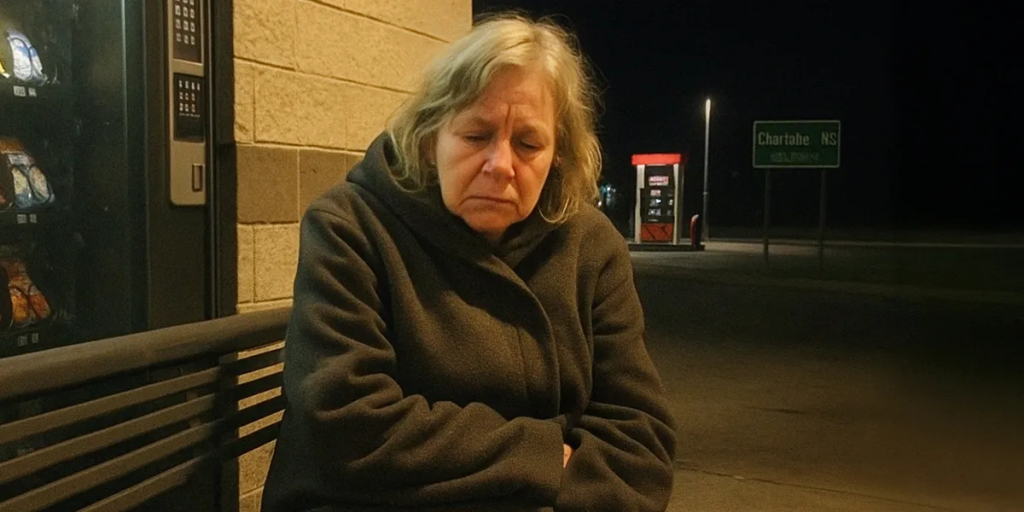
They say revenge is a dish best served cold, but what I cooked up for my grandsons after they abandoned my wife at a gas station was downright frigid. Sometimes love looks like tough lessons, and sometimes lessons need to hurt to stick.
I don’t like to talk about my private life on social media, but what happened last month was something that had to be shared here.
All my life, I’ve been known as the calm one. The reasonable one. The man who thinks before he speaks and rarely raises his voice.

An older man sitting in his living room | Source: Midjourney
For 43 years, I worked my fingers to the bone at the same manufacturing plant, climbing from floor worker to shift supervisor before finally retiring three years ago. Every overtime shift, every missed weekend, and every aching muscle was all to make sure my family had what they needed.
Not necessarily what they wanted, mind you, but what they needed. A stable home. Good education. Dinner on the table every night.
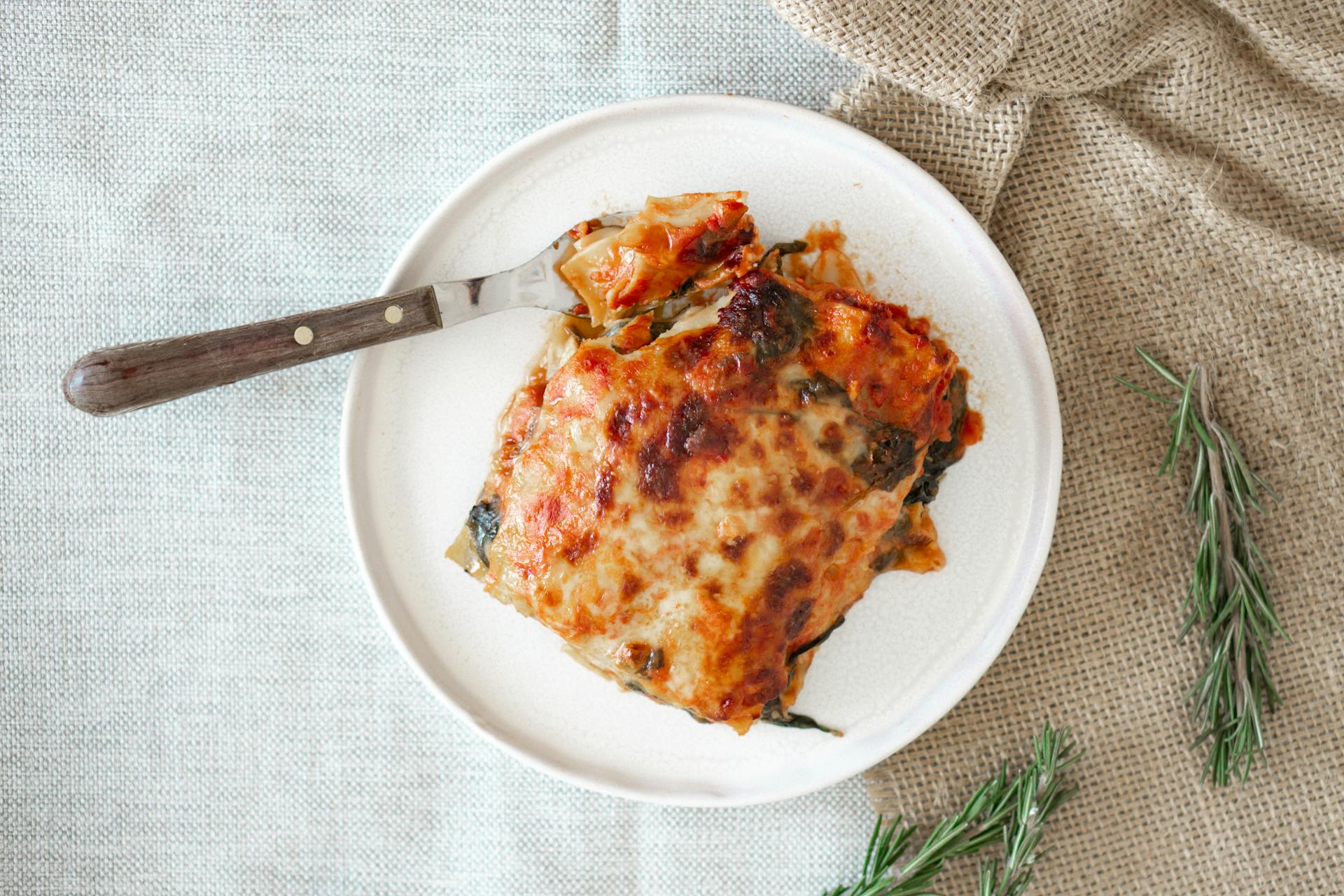
A plate of lasagna | Source: Pexels
Now, in my retirement, I’ve finally been able to focus on the one person who stood by me through it all. My Laura. My wife of 43 years, with her soft smile and that quiet laugh that still makes my heart skip like it did when we were teenagers.
She’s the kind of woman who remembers everyone’s birthday, who still clips coupons even though we don’t need to anymore, who volunteers at the animal shelter every Tuesday because “the cats get lonely.”
We’ve got two twin grandsons. Kyle and Dylan, both 23.
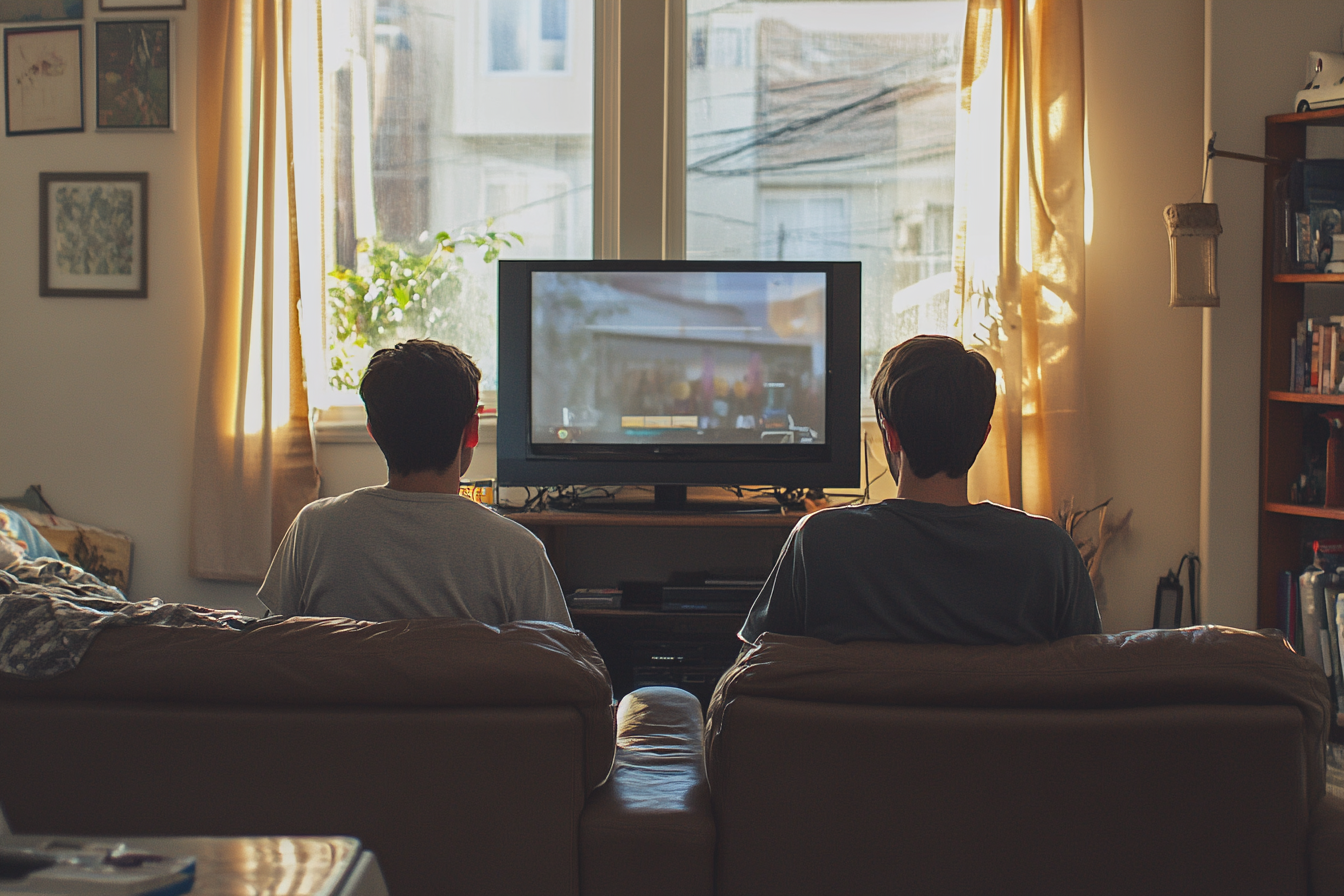
Two brothers sitting in a living room | Source: Midjourney
They’re smart and charming. I always thought they were raised well until the moment I received a phone call from Laura.
It started just before Easter. The boys showed up at our door unannounced, saying they had a “surprise” for Grandma’s birthday.
According to them, they were planning a trip to Washington, D.C. because she’d always dreamed of seeing the cherry blossoms there.

A close-up shot of cherry blossoms | Source: Pexels
I remember how her eyes lit up when they described the Jefferson Memorial surrounded by pink petals and the boat rides on the Potomac.
They told her she didn’t need to lift a finger.
They’d book the hotel, cover the meals, and take care of everything. All she had to do was let them borrow her car for the journey. Laura cried right there in our living room. Said it was the sweetest gift she’d ever been given.
I won’t lie, even I got misty-eyed watching her happiness.

An older woman smiling | Source: Midjourney
After four decades of putting everyone else first, my Laura was finally getting the recognition she deserved.
But I should’ve known something was off when they said, “You don’t need to come, Grandpa. We want this to be just for her.”
I chalked it up to them wanting quality time with their grandmother. Now I wish I’d listened to that little voice in the back of my head.
Two days later, I got a phone call that broke me in a way I haven’t felt since my brother passed.
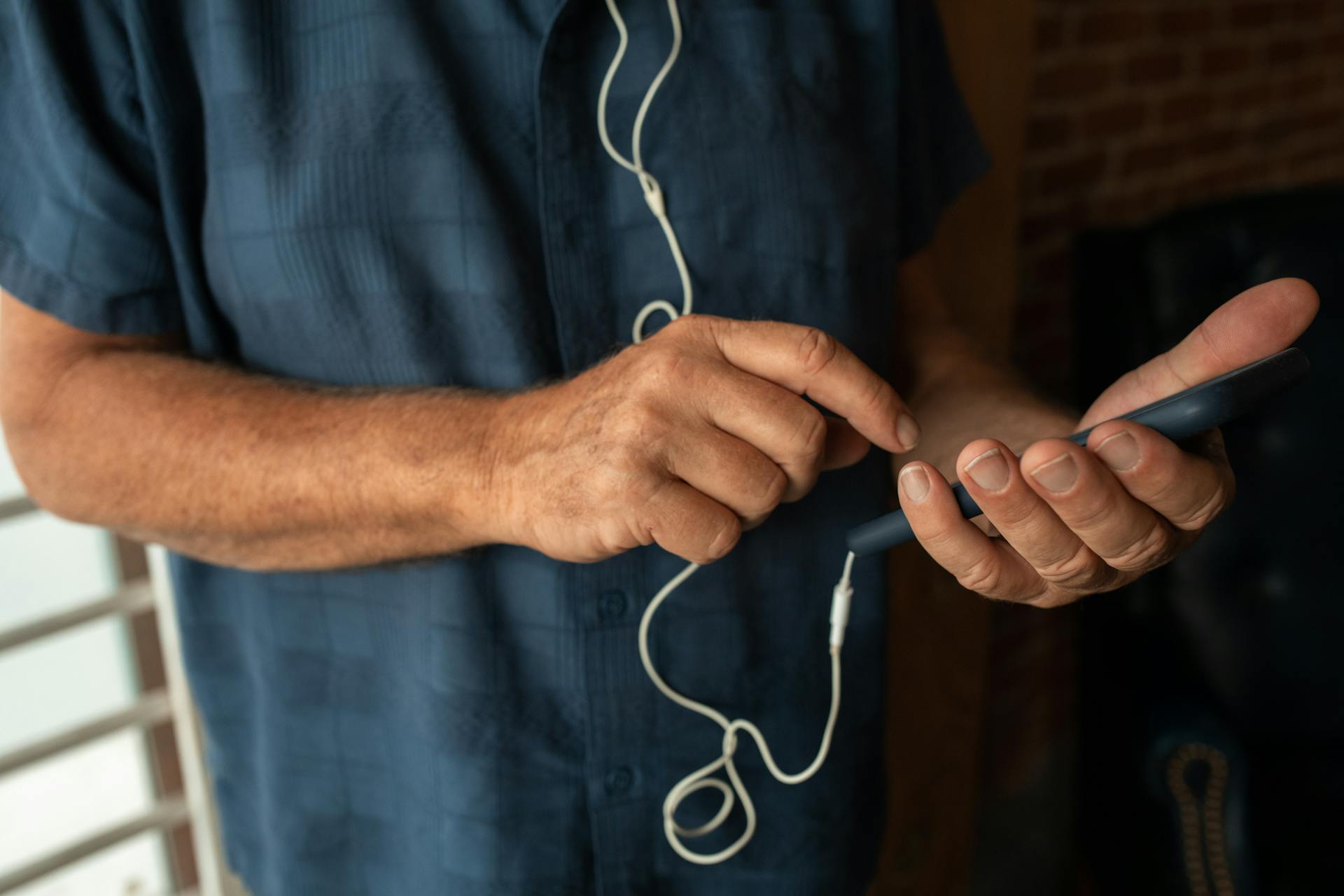
A man using his phone | Source: Pexels
It was Laura.
Her voice was trembling with the effort of holding back tears. She was at a gas station. Alone. At midnight. No money. No food. No car.
“Arnold,” she whispered, “I don’t want to bother you, but I don’t know what to do.”
As she spoke, the story unfolded like a nightmare. Their “gift” had gone like this: They had her pay for the hotel, claiming their credit cards were “blocked” and they’d “pay her back soon.” She covered all the meals, their museum tickets, and even bought them new clothes when they claimed they’d forgotten to pack enough. Every time she reached for her purse, they assured her it was just a temporary loan.
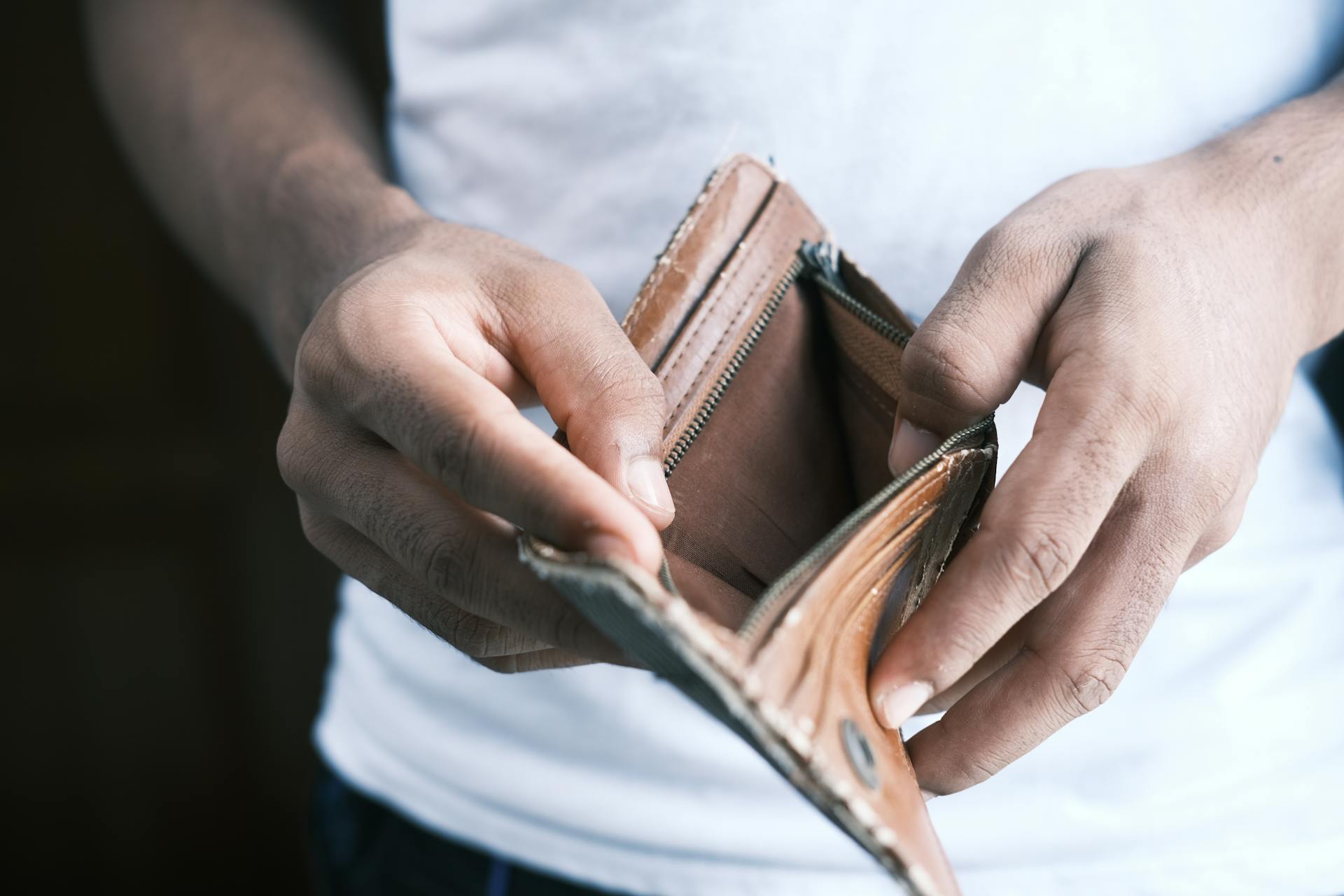
A man holding an empty wallet | Source: Pexels
Then, on the last day, while heading home, they stopped for gas just outside of Richmond. Laura went in to pay (again) and while she was at the counter, they simply drove off. Took her car. Left their 64-year-old grandmother stranded at a gas station so they could “go party” at some club one town over.
My heart turned to stone as she described waiting for them to return.

An old woman sitting at a gas station | Source: Midjourney
How she’d sat outside on a metal bench for hours, then moved to huddle next to a vending machine when it got too cold. How she’d spent the night wrapped in her thin spring coat, trying not to draw attention to herself, afraid to sleep in case someone bothered her.
She didn’t even have enough money left for a taxi or a hotel room.
“I didn’t want to call,” she said. “I kept thinking they’d come back. They must have forgotten. They wouldn’t just leave me…”
But they did. They left my Laura alone in the dark like she was nothing.

A man talking on the phone | Source: Midjourney
“Stay where you are,” I said. “I’m coming.”
Four hours later, I picked her up, hugged her, and drove home in silence. She told me everything on the ride, including how the boys had spent the entire trip on their phones, barely talking to her, and treating her more like an ATM than a grandmother.
By the time we pulled into the driveway, I already had a plan.

A view from a car | Source: Pexels
***
Three days after those boys got back, I texted them both the same message.
“Grandma and I were so touched by your birthday surprise. We’d love to return the favor. Pack for the weekend. We’re taking you on a trip.”
They responded almost immediately. Kyle with a string of excited emojis. Dylan with “Finally! A family getaway where we don’t have to foot the bill!”
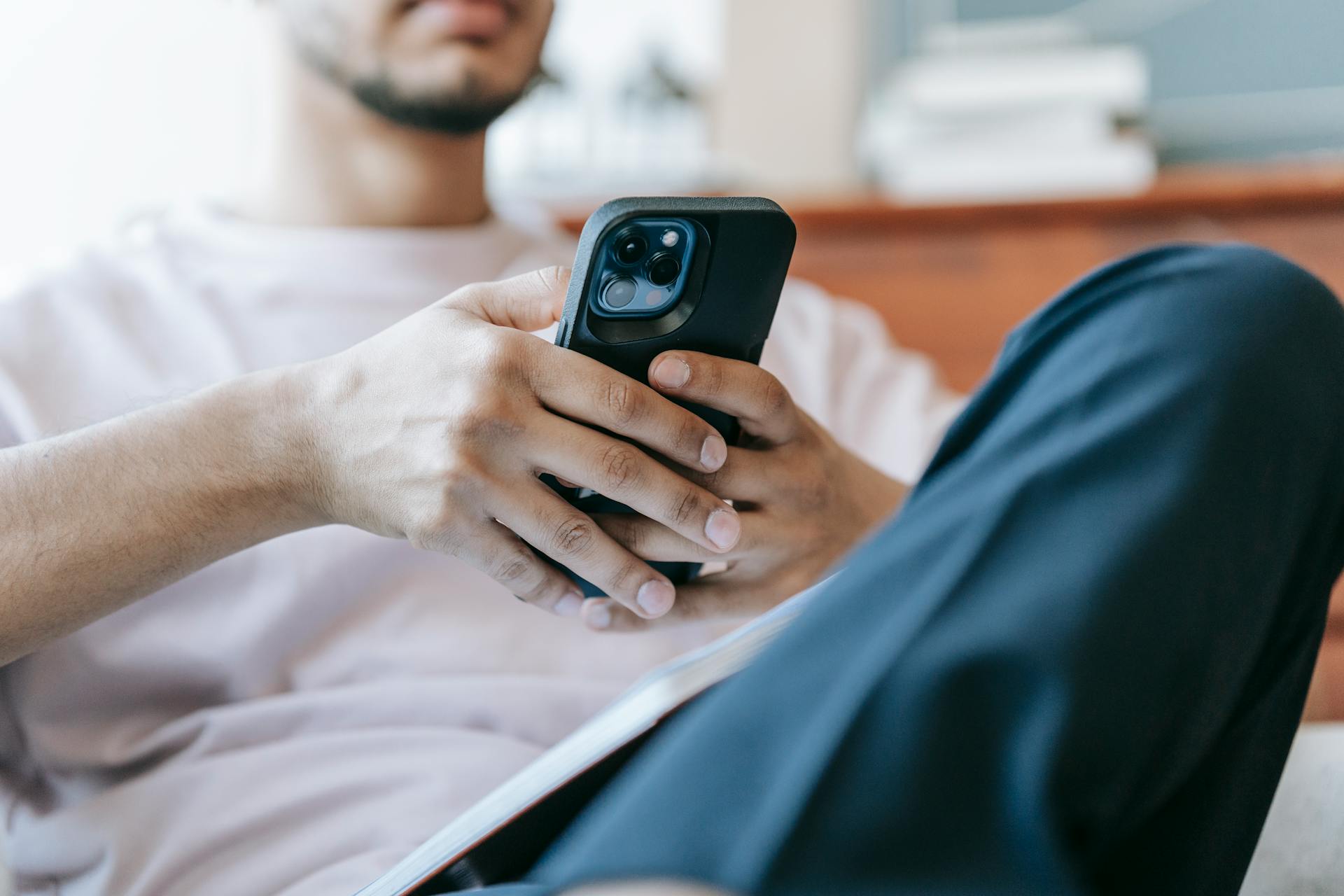
A man using his phone | Source: Pexels
What they didn’t know was that I’d already called in a favor from an old friend of mine, Sam, who runs a wilderness retreat center up in the mountains. It used to be a Boy Scouts camp back when we were kids.
Now? It’s primarily a digital detox center for teenagers who can’t go five minutes without checking social media.
Sam owed me big time after I helped him rebuild his dock last summer. When I explained what had happened to Laura, his face turned dark.
“Tell me what you need, Arnold,” he said.

A man sitting in his office | Source: Midjourney
I told him, “Make it old-school. The full 1985 experience. Cold showers. No phones. Military cots. The works.”
He said, “Say less, my friend. I’ve got just the program.”
We drove out Friday morning. Three hours deep into the woods, far beyond cell service. The boys were hyped in the backseat the whole way, playing music on their phones, taking selfies, joking about what luxury accommodations awaited them. I just nodded and kept quiet as I drove on the rough road.
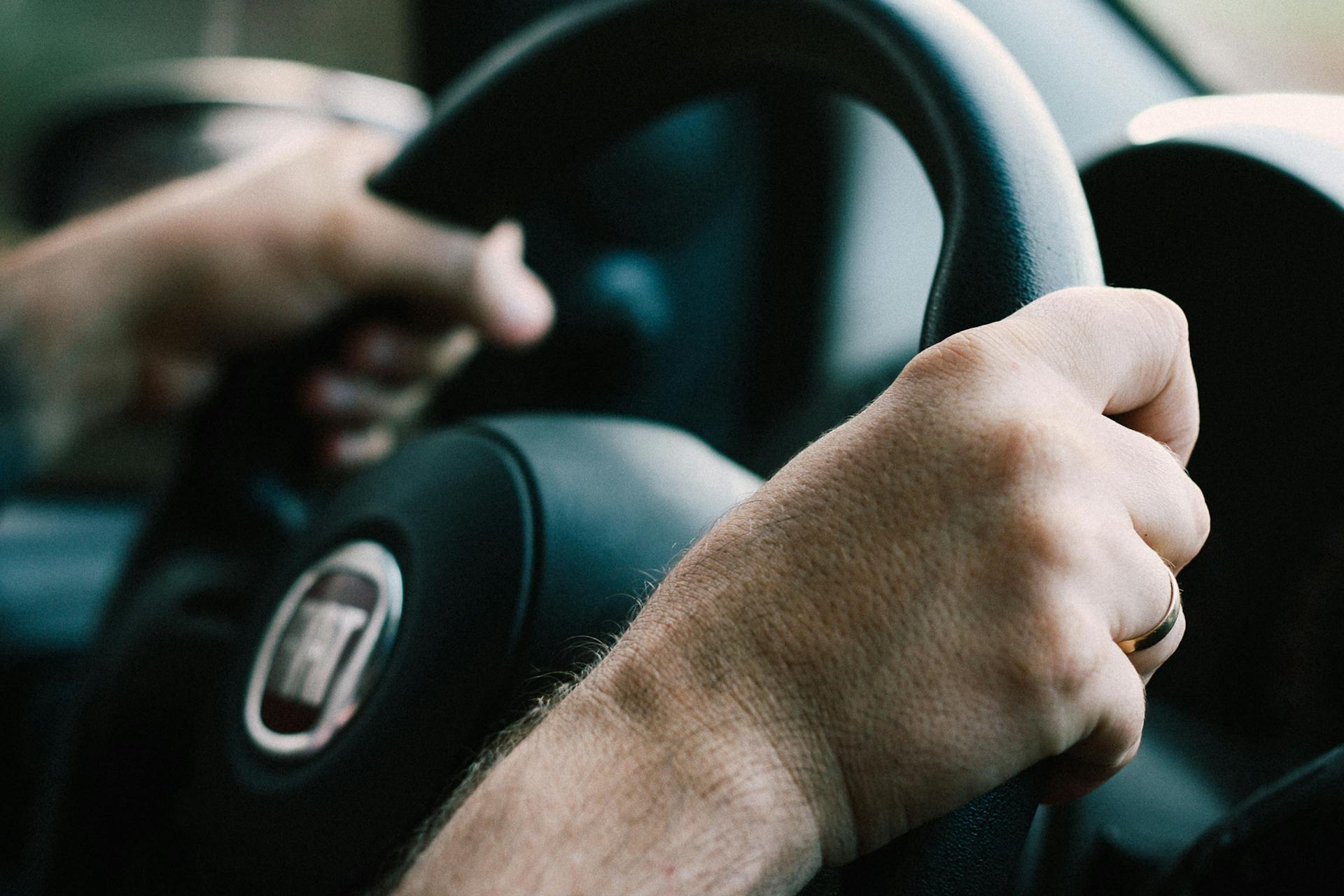
A man holding a steering wheel | Source: Pexels
We arrived at the camp around noon. Dirt parking lot. Wooden cabins with peeling paint. Outhouses instead of bathrooms. Not a Wi-Fi signal in sight.
“Uh… where’s the hotel?” Kyle asked.
Dylan added, “Is this like, a themed Airbnb or something? Before we go to the real place?”
“Retro weekend, boys!” I announced with a smile. “Disconnect to reconnect. That’s the theme.”
They groaned in unison as they realized what was happening.
I asked for their phones, told them it was “part of the experience.”

A man talking to his grandsons | Source: Midjourney
Begrudgingly, they handed them over, still clearly expecting this to be some sort of joke or brief introduction before the real vacation began.
Then I showed them the printed schedule I’d worked out with Sam:
Saturday:
6 a.m. wake-up
Clean the outdoor latrines
Chop firewood
Hand-wash dishes from the mess hall
Evening: group journaling on “gratitude”
Sunday:
Mow the lawn with push mowers
Build a compost bin
Final activity: a lecture titled “Respecting Your Elders: Why It’s Not Optional”
Their jaws literally dropped. I would have laughed if I wasn’t still so angry.

A close-up shot of a young man’s face | Source: Midjourney
“You’re kidding,” Kyle said, looking around for cameras, as if this might be some elaborate prank.
Dylan laughed nervously. “Wait… seriously? This is the trip?”
I said nothing. Just handed their duffel bags to Sam, who had appeared silently behind them.
Then I got back in the truck. And drove off.
In the rearview mirror, I could see them standing there, mouths open, as Sam put a firm hand on each of their shoulders and guided them toward the most basic cabin on the property.

A truck | Source: Pexels
***
I didn’t hear from them until Sunday evening.
Sam had called earlier to assure me they were fine. Sullen, blistered, and exhausted… but fine. He said they’d done every task assigned, though not without complaint.
The biggest shock to their system had been the 5 a.m. cold shower on Saturday when the camp’s ancient water heater “mysteriously” stopped working.
Around seven that evening, our home phone rang. They’d borrowed the camp director’s landline.
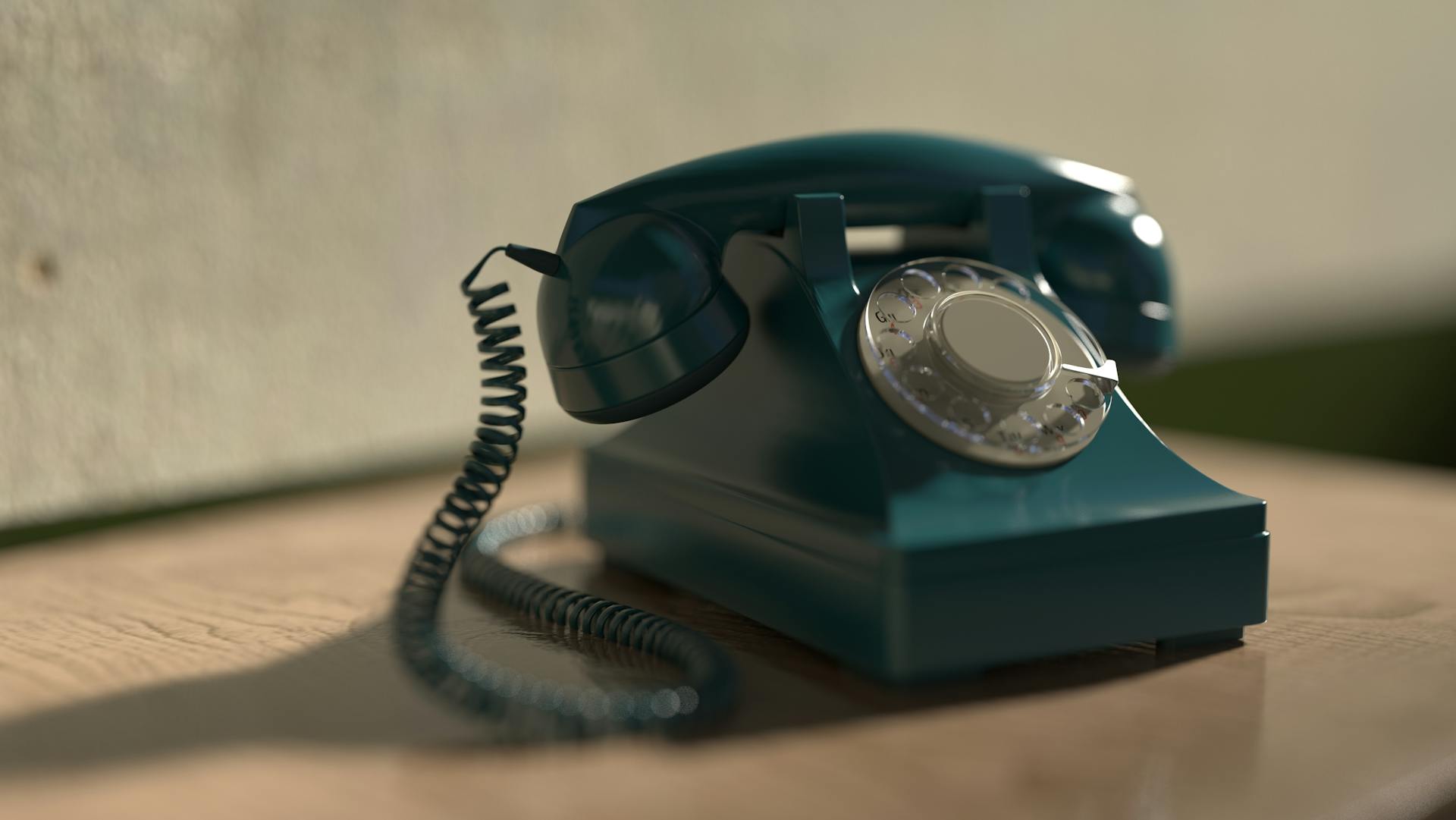
A landline phone | Source: Pexels
Kyle sounded hoarse. “Grandpa,” he said, voice cracking, “we’re sorry. We’re so, so sorry.”
I could hear sniffling, and then Dylan got on the line. “Please… just let us talk to Grandma.”
I passed the phone to Laura, who had been sitting quietly beside me all weekend. She’d been against the plan at first, saying “they’re just boys” and “they made a mistake.”
But when I gently reminded her how she’d looked when I found her at the gas station, she just went quiet.
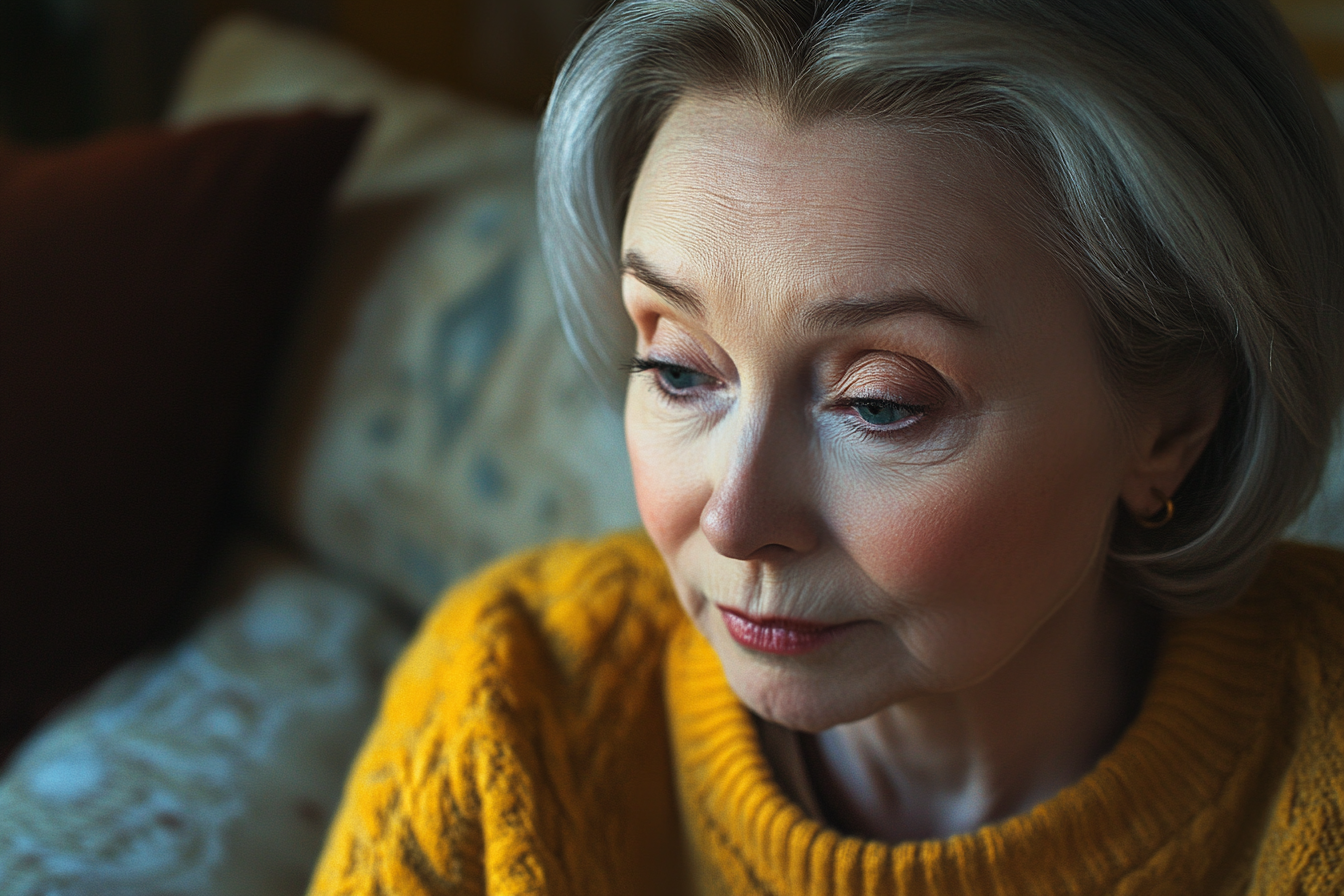
A woman looking down | Source: Midjourney
She listened quietly while they poured their hearts out. Apologies. Regret. Tears. Promises to make it up to her.
When they finally finished, she simply said, “I knew your grandfather would come up with something appropriate. He doesn’t say much. But he remembers every tear on my face.”
I picked them up Monday morning. They came trudging out of the camp looking like they’d aged five years in a weekend. Sunburnt. Sore. Quiet.
They hugged Laura so hard she nearly tipped over, both of them talking over each other with apologies.
And me? I made them pancakes and let them sit in the silence of their own guilt while they ate. Sometimes the loudest statement is saying nothing at all.

A plate of pancakes | Source: Pexels
A week later, they showed up at our house again. But this time, not for food or favors or to ask for money.
They had printed photo albums from the cherry blossom trip. Not the half-dozen selfies they’d taken, but actual thoughtful photos of the monuments, the flowers, the experiences they’d shared. Inside was a card covered in their messy handwriting:
“To the best Grandma,
We messed up. This was supposed to be about you. We forgot that. Never again.
Love, Kyle & Dylan.”
And tucked inside was a second envelope. It had every cent she had spent, repaid in cash.
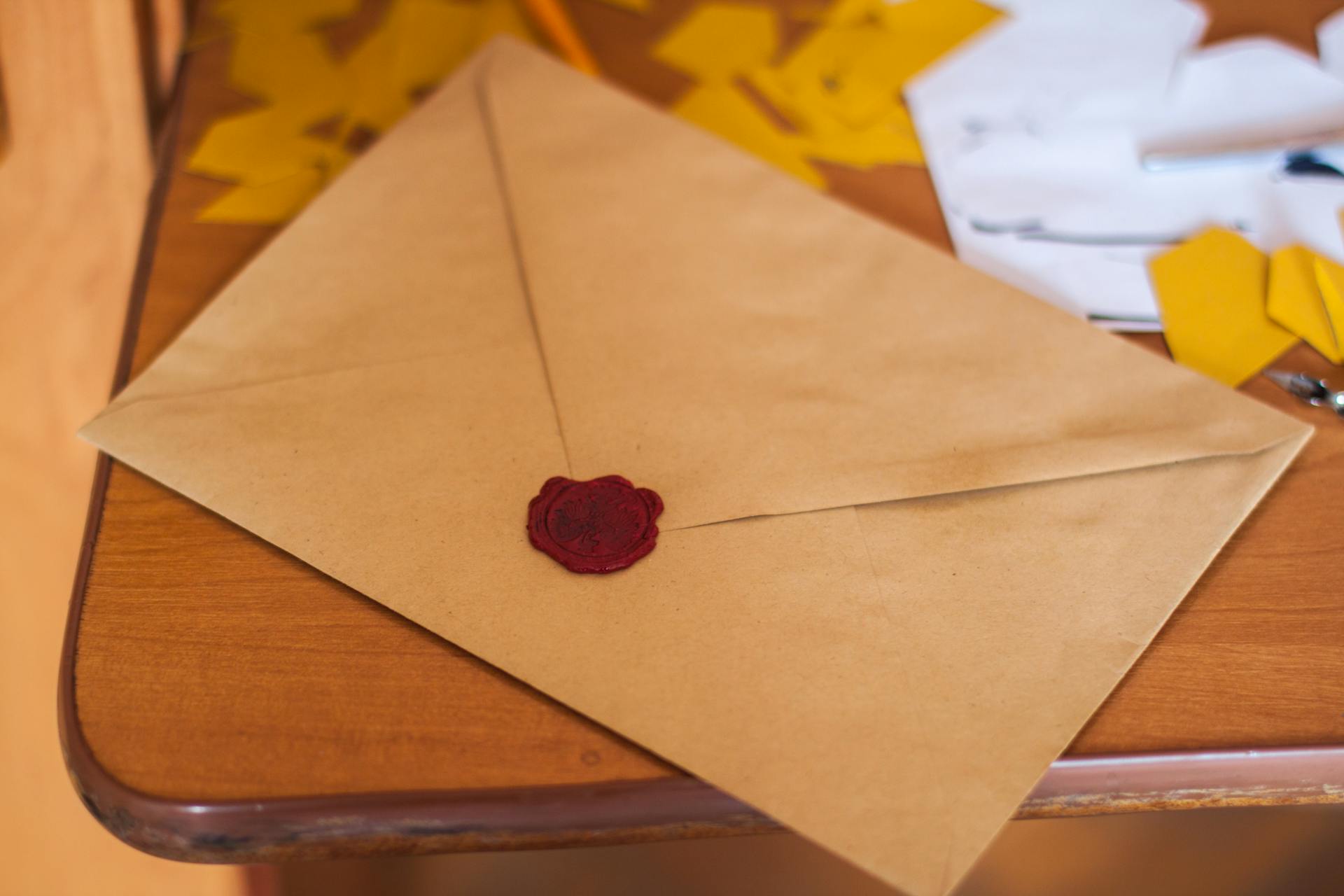
An envelope | Source: Pexels
Since then? They’ve taken her to lunch every other Sunday. They call just to check in. Last week, they even fixed up our fence without being asked.
They learned. Because sometimes the best lessons don’t come from yelling or lecturing or endless arguments.
They come from one cold night. No phones. No car. No Grandma.
Just the long, lonely silence of knowing you broke someone’s heart.



Leave a Reply